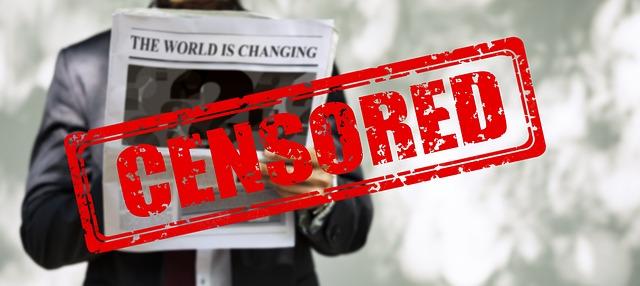In an era where information flows more freely than ever, the quest for truth stands as a formidable challenge, particularly in regions grappling with the complex interplay of media freedom and governmental oversight. Pakistan, a nation rich in history and cultural diversity, embodies this struggle. From the vibrant streets of Karachi to the political intrigue of Islamabad, journalists navigate a labyrinth of expectations, risks, and barriers in their pursuit of transparency and accountability. As societal narratives shift and the stakes rise, understanding the intricacies of media freedom in Pakistan becomes essential. This article delves into the multifaceted challenges confronting the press, exploring the delicate balance between safeguarding liberty and ensuring responsible reporting in a landscape where the very essence of truth is often contested.
Exploring the Landscape of Media Freedom in Pakistan
In Pakistan, the media landscape is a complex tapestry woven with vibrant narratives that clash against a backdrop of constraints. The right to information is often overshadowed by challenges such as government censorship, societal pressures, and threats to journalists. Many media outlets operate under a precarious balance, pushing the envelope of freedom while navigating a climate of fear. These pressures often result in self-censorship, where reporters may avoid sensitive topics, leaving critical issues underreported. In regions rife with violence, such as Balochistan and Khyber Pakhtunkhwa, journalists face grave risks, illuminating the stark consequences of unchecked authority.
Despite these struggles, a resilient spirit prevails within the journalistic community. Initiatives to promote media literacy and advocacy for journalistic rights have gained momentum, fostering a new generation of reporters committed to uncovering the truth. The rise of digital platforms has also played a transformative role by providing alternative channels for expression, allowing voices that might otherwise be silenced to resonate with wider audiences. This dynamic environment presents both challenges and opportunities, illustrating the ongoing battle for media autonomy while hinting at a future where facts may prevail over fear.

Barriers to Truth: The Role of Censorship and Intimidation
The landscape of media freedom in Pakistan is often overshadowed by a pervasive climate of censorship and intimidation. Journalists and media organizations frequently find themselves walking a tightrope, where the pursuit of truth can lead to dire consequences. The tools of suppression range from government regulations to threats from non-state actors who may find the dissemination of certain information detrimental to their interests. As a result, many in the media are compelled to practice self-censorship, avoiding topics deemed sensitive or controversial. This chilling effect not only compromises the integrity of journalism but also deprives the public of diverse perspectives and critical information necessary for an informed society.
In this challenging environment, several factors contribute to the erosion of media freedom:
- Legal Restrictions: Stringent laws that limit freedom of expression.
- Threats and Harassment: Journalists often face physical threats, harassment, or even violent reprisals for their reporting.
- Media Ownership: Large media conglomerates may push narratives aligned with their business interests, further homogenizing the media landscape.
- Public Mistrust: Frequent misinformation or biased reporting breeds skepticism among the audience, complicating the perception of factual reporting.
| Factor | Impact on Media Freedom |
|---|---|
| Legal Restrictions | Impedes investigative journalism and restricts freedom of speech. |
| Intimidation | Leads to self-censorship and discourages coverage of certain issues. |
| Media Ownership Concentration | Limits diversity in media portrayal and emphasis. |
| Public Mistrust | Undermines the credibility of honest journalism efforts. |

Empowering Journalists: Strategies for Resilience and Integrity
In the face of adversity, journalists in Pakistan can cultivate a sense of resilience through a multi-faceted approach that nurtures both personal fortitude and collective strength. Building support networks is pivotal; by fostering connections with fellow journalists, organizations, and civil society groups, media professionals can share resources and strategies to bolster their safety and effectiveness. Additionally, continuous education in digital security and ethical reporting can empower journalists to navigate the complexities of the media landscape without compromising their integrity. Adapting to the evolving challenges also means embracing innovative storytelling techniques, such as utilizing multimedia platforms and engaging with audiences through social media, which can enhance reach and impact while ensuring that important narratives are heard.
Furthermore, establishing a culture of transparency and accountability within media organizations is essential for upholding the trust of the public. This can be achieved through the introduction of formal complaint mechanisms, ensuring that any instances of misinformation or unethical reporting are addressed promptly. Training sessions that emphasize the importance of ethical standards and the repercussions of deviating from them can create an environment where journalists feel empowered to report truthfully. To illustrate the relationship between ethical standards and public trust, the following table highlights key elements that can enhance the credibility of media in Pakistan:
| Element | Description |
|---|---|
| Transparency | Openly sharing sources and methods to build credibility. |
| Accountability | Establishing mechanisms for audience feedback and corrections. |
| Education | Regular training on ethical journalism and digital security. |
| Collaboration | Working with international media and NGOs for support. |

Building a Culture of Accountability: The Path Forward for Media Ethics
In the complex landscape of media freedom, fostering a culture of accountability is paramount to ensuring ethical practices in journalism. Key strategies for cultivating this environment include:
- Establishing clear guidelines that define ethical behavior for journalists.
- Encouraging transparency by making editorial decisions and sources accessible to the public.
- Implementing robust training programs focused on ethical reporting and accountability standards.
Furthermore, engaging with the audience is crucial for holding media entities accountable. Media organizations should prioritize feedback mechanisms that promote dialogue between journalists and the communities they serve, thereby reinforcing trust in their reporting. By integrating accountability into the very fabric of their operations, media entities in Pakistan can navigate the challenges of freedom without compromising their integrity.
To Wrap It Up
As we draw the curtains on this exploration of media freedom in Pakistan, it becomes evident that the pathway to truth is as intricate as it is vital. The landscape is shaped by a myriad of voices and influences, each vying for space in a nation where the echoes of history are ever-present. Journalists navigate a labyrinth of challenges—censorship, intimidation, and the weight of societal expectations—each obstacle a testament to their resilience and commitment to unveiling the stories that matter.
In a world increasingly defined by information overload, the responsibility of discerning fact from fiction rests not only on the shoulders of media professionals but also on the audience. The delicate balance between freedom of expression and the pursuit of truth remains a contentious topic, underscoring the need for continued dialogue and advocacy. As we move forward, the call for a robust media that champions transparency and accountability is clearer than ever.
Ultimately, the journey of navigating truth is far from over. It is a dynamic, evolving challenge that requires the collective effort of individuals, organizations, and policymakers to foster an environment where the media can thrive and foster democracy. In this ongoing quest, let us remain vigilant and engaged, ensuring that the principles of freedom and truth are upheld for generations to come.



